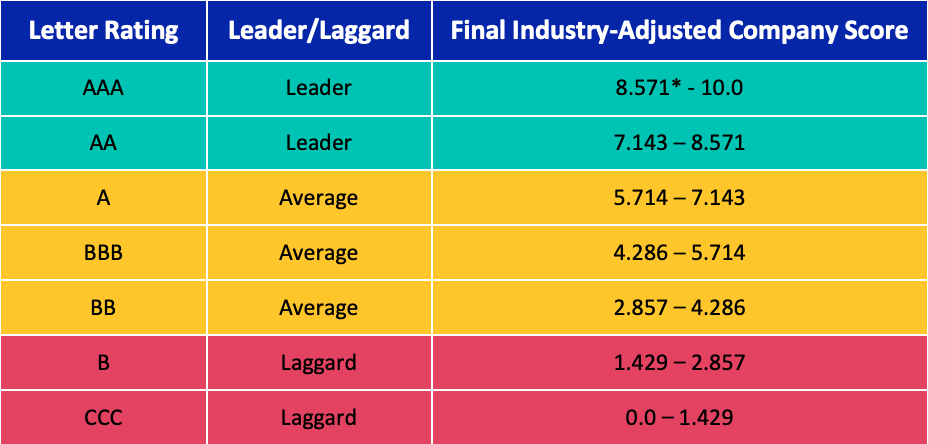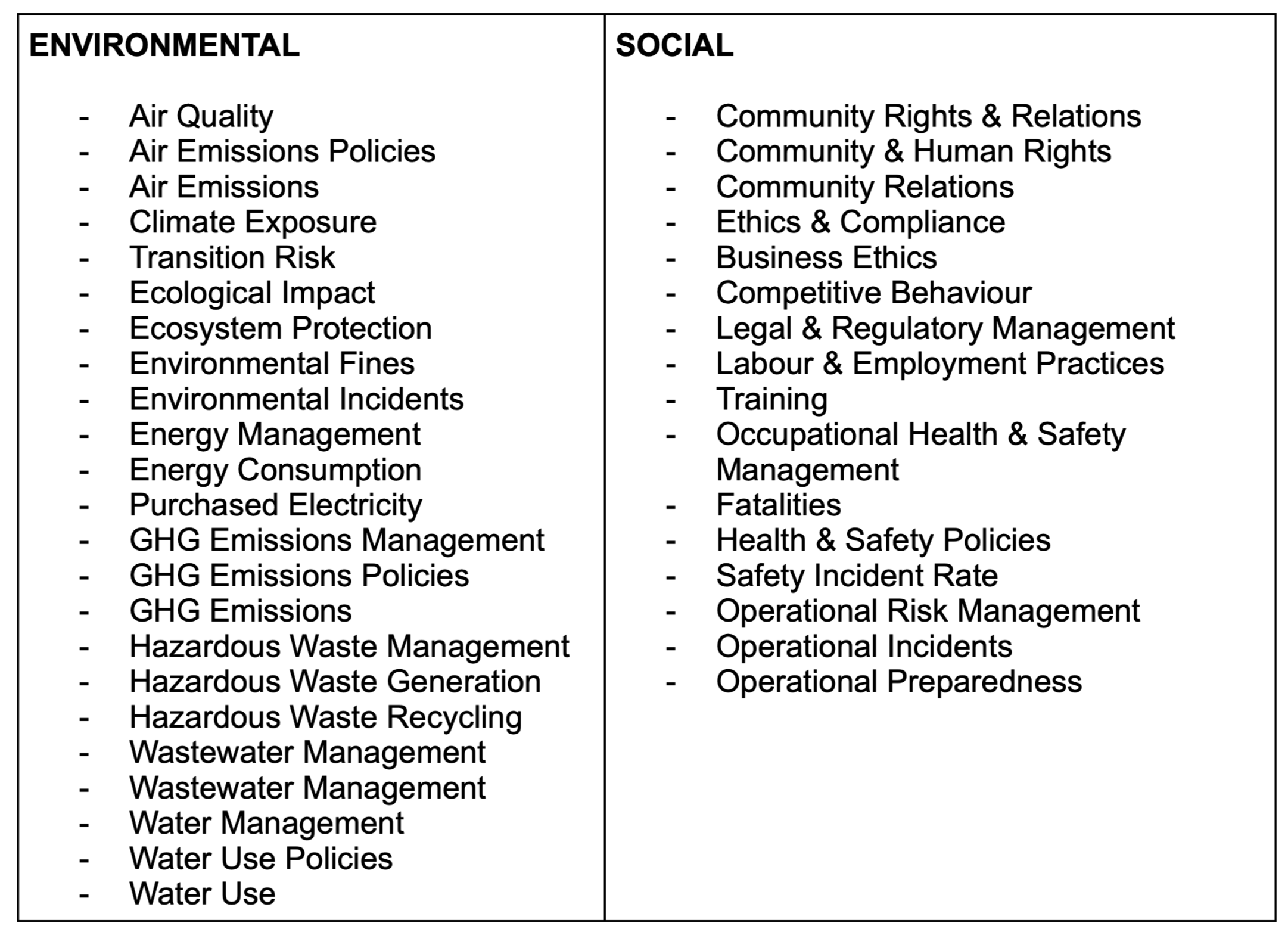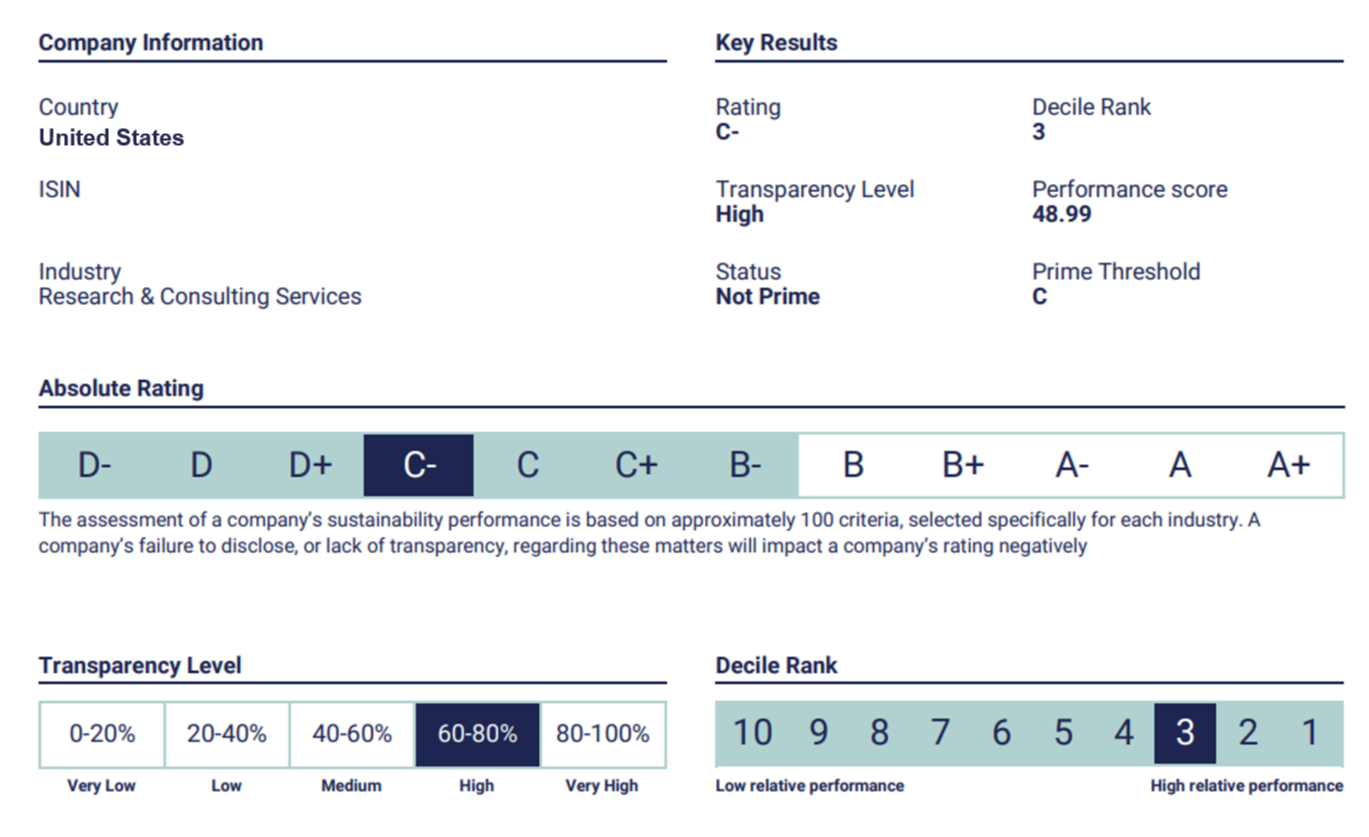Top ESG Ratings - Are We Comparing Apples and Oranges?

When talking about ESG or sustainable investing, one important question which comes into any investor's mind is how to measure a company's ESG performance? An answer to this is provided in the shape of ESG ratings/scores provided by a plethora of ESG data providers. Each one claims they are the holy grail for the best ESG ratings, covering a lot of parameters, i.e., company disclosures, news sentiment, controversies, etc.
However, the jury is still out in terms of which ESG rating provider is best or most complete. Another key question which no one has been able to answer is how to compare between different ESG rating providers.
Featured: How To Calculate Your Individual ESG Score
One can argue whether it is the right approach to even compare different ESG rating providers, given that they vary vastly in terms of the underlying methodology used, asset classes, geographical coverage, etc.
Following is an attempt to highlight the key aspects of the methodology and final output for leading ESG data providers:
Here are the leading ESG rating providers in terms of market adoption:
Sustainalytics - With over twenty years of expertise in the financial market, they came up with an ESG risk score with underlying environment, social and governance risk ratings.The rating ranges from 100 to 0, i.e., closer to 100 is high risk (bad score, red zone) and closer to 0 is low risk (excellent score, green zone). The ESG Risk Score comprises two dimensions:
Exposure: ESG-related risk factors which can cause a potential financial risk to companies. It can also be considered as a company's sensitivity or vulnerability to ESG risks.
Management: Considers how well a company is able to handle its material ESG risk.
Below is the actual scale of how Sustainalytics measures company ESG Risk:

2. Refinitiv - With a history going back to 2002, the company promises and claims to provide one of the most thorough ESG datasets, encompassing more than 80% of the worldwide market value over more than 630 different ESG metrics. Refinitiv generates an ESG score that ranges from 0 to 100, closer to 100 being the better score a company can achieve. They also include a controversy score which is generated based on controversial ESG news events happening across the globe that relate to the specific company.
The below table showcases how the ESG Score is generated from the bottom to top approach:

3. Morgan Stanley Capital International (MSCI)– The key focus of the MSCI ESG Ratings is to measure any given company how they are managing financially relevant ESG risks and opportunities. MSCI is the first ESG provider to assess companies based on industry materiality, dating back to 1999.
Key highlights from the MSCI ESG methodology are:
For each industry, on an annual basis, 35 key issues and associated weights are identified, based on the MSCI Materiality Map framework.
Exposure Metrics: These determine how exposed a given company is to a material issue (based on more than 80 geographic and business segment metrics).
Management Metrics: Determine how a given company manages each material issue (based on 100+ governance key metrics, 20 performance metrics, 150 policy metrics).
MSCI ESG Ratings are generated for ESG’s underlying pillars of E, S, and G, the scale going from 0 to 10 where MSCI has given a specific category for each range, as shown below:

4. Bloomberg - Being one of the major players in the global business and financial information and news leader, Bloomberg, in April 2020 launched Proprietary ESG Scores for Oil & Gas Industry. Initially, only for 252 companies, the scores were generated based on E & S scores, which gradually expanded to an index of 11,800 companies, updated to ESG Disclosure scores.
Bloomberg’s approach to scoring ESG performance is characterised by a bottom-up, model-driven method driven primarily by self-reported, publicly available information that results in a fully transparent, parametric, rules-based scoring framework. The Bloomberg ESG Disclosure score comprises E, S, and G scores, and the scale ranges from 0 to 100, where a score near to 100 is the best score a company can achieve.
Featured Article: ESG Ratings: A Benchmark For Performance
Bloomberg claims that the ESG data that they use for E & S scores consist of voluntary disclosures captured only from direct (primary) sources, in order to ensure accuracy and consistency with original corporate information. These sources include sustainability reports, annual filings, proxy statements, corporate governance reports, supplemental releases, and company websites.
Bloomberg’s E & S Scores are divided into the following hierarchy: Pillars, Issues, Sub-Issues, and Fields. Each issue has a minimum of one sub-issue that collects related E & S data fields. Oil and gas sector pillars, issues, and sub-issues for E & S.
Below are the Bloomberg score parameters and issue priorities list for which scores are generated:

5. Dow Jones - With an innovative collection approach, Dow Jones has captured a wide range of data on the Environment, Social, and Governance (ESG) profile for more than 6,000 worldwide corporations. Their sustainability score dataset is primarily generated using the Dow Jones Factiva news universe.
Dow Jones follows the SASB framework to generate the ESG aggregate score and five pillar scores: Environment, Social Capital, Human Capital, Business Model & Innovation, Leadership & Governance. The scores are generated using a bottom-up approach, where company news and company disclosures are collected and categorised into 26 SASB category scores, further divided into five pillar scores, from which, when including weighted financial materiality, an aggregate ESG score is generated.
The scale ranges from 0 to 100, where a score near to 100 is the best score for a company.
The image below outlines how the Dow Jones score is generated:

6. ISS - Founded in 1985, the Institutional Shareholder Services group of companies (ISS) launched their proprietary ESG score in 1993 and recently launched their Regulatory Sustainable Investment solution as well.
ESG data and performance ratings are generated by the ISS ESG corporate rating. According to ISS, firms are evaluated against a predetermined list of general ESG themes as well as additional industry-specific subjects. They consider material sustainability risks as well as negative effects on society and the environment as part of their ESG rating framework. Out of 700 indicators, ISS ESG uses about 100 social, environmental, and governance-related indicators for each rating, and assigns scores for important metrics like employee concerns, supply chain management, business ethics, corporate governance, environmental management, eco-efficiency, and others.
The ISS ESG corporate rating uses a twelve-point grading system and the scale goes from A+/4.00 i.e. excellent performance to D-/1.00, i.e., poor performance.
The ISS ESG Rating also incorporates GRI, SASB, and TCFD standards into their methodology, and generates disclosure scores.
Below image shows ISS ESG Rating of a company:

We see a diverse range of ESG ratings that are provided by various data providers implementing their own logic and methodologies. It is also interesting to note that most of them have implemented various voluntary and regulatory frameworks. However, one key question is why regulators never came up with a standard structure for ESG Ratings? The answer could be that the dominance of these ESG rating providers in the market, and implementing a regulatory standard now can wreak havoc, similar to if you were to try to harmonise various electric switch types within a single house. Critically, with no proper single ESG standard system in place, greenwashing may continue to be enabled. If the ESG space is to remain relatively unregulated, then a good step could be to introduce specific transparency measures when it comes to data collection, methodologies involved, and final output.
Click here to find and compare the ESG ratings of top companies across three leading ESG data providers: Sustainalytics, Refinitiv, and MSCI.

